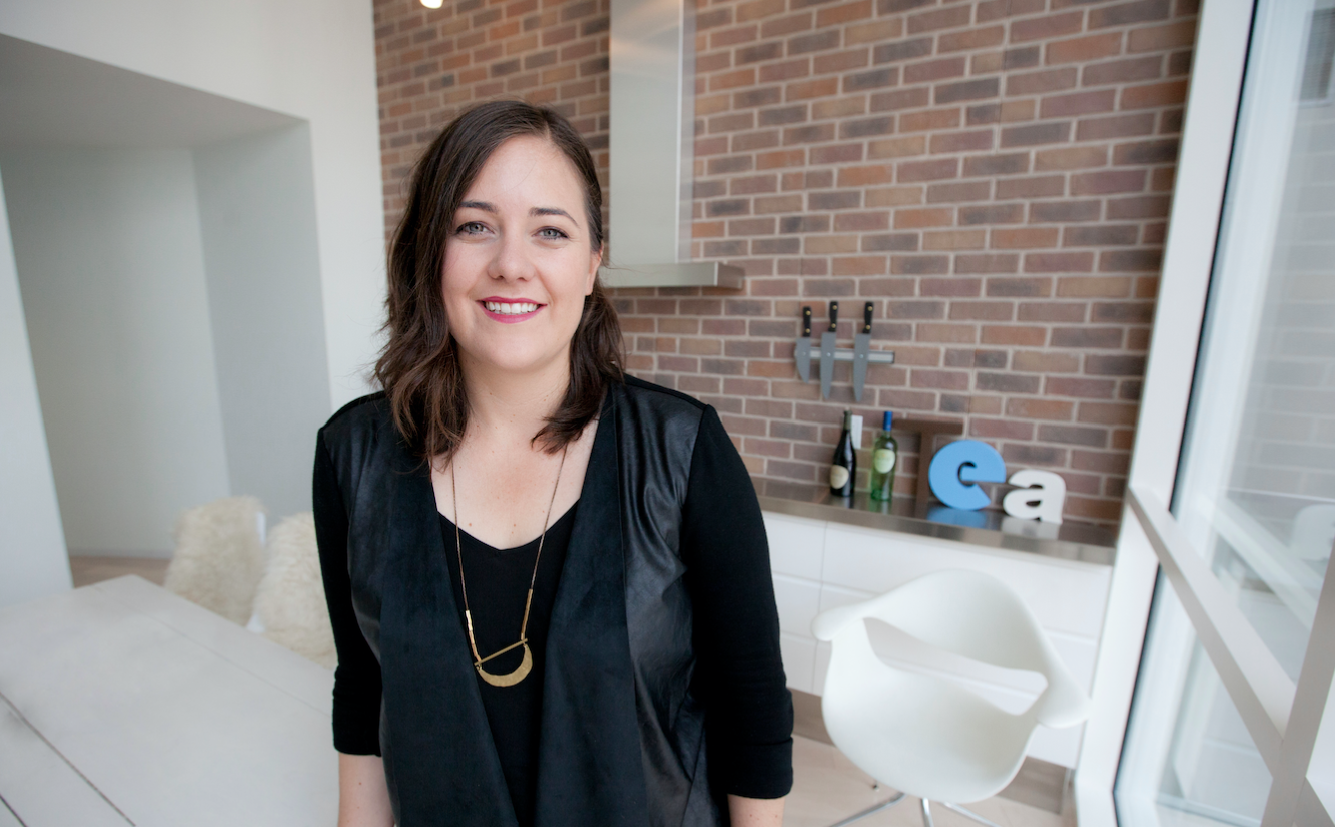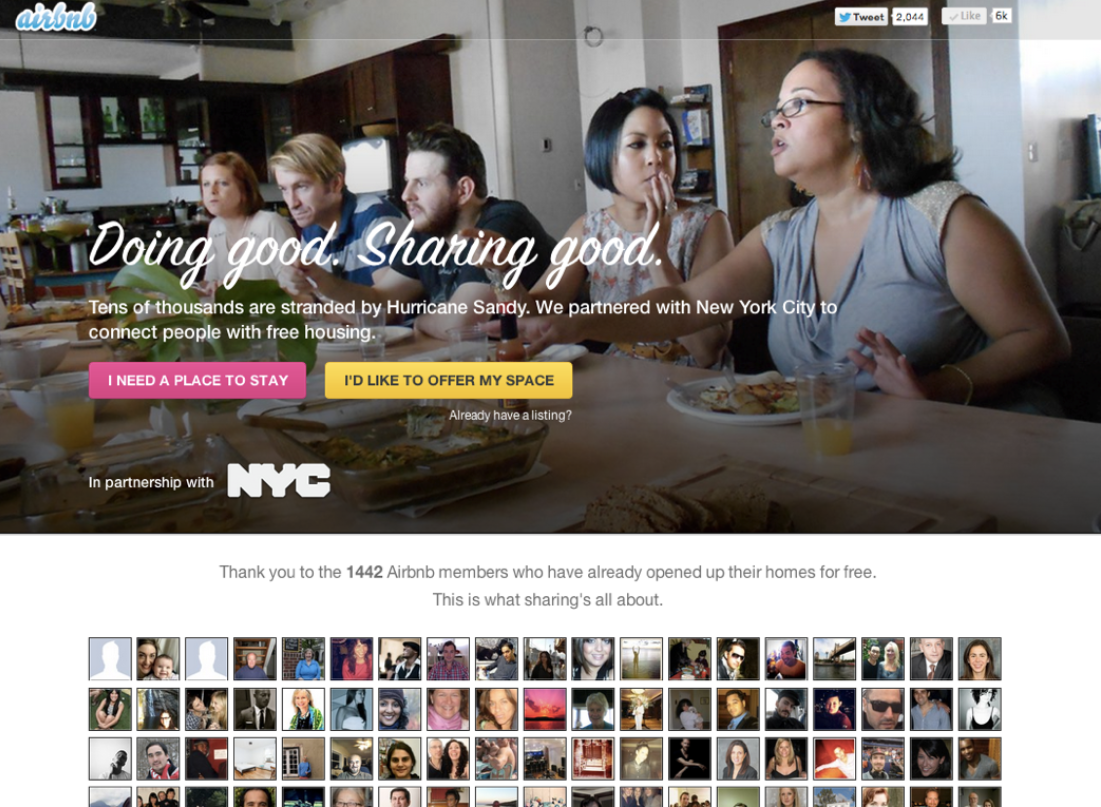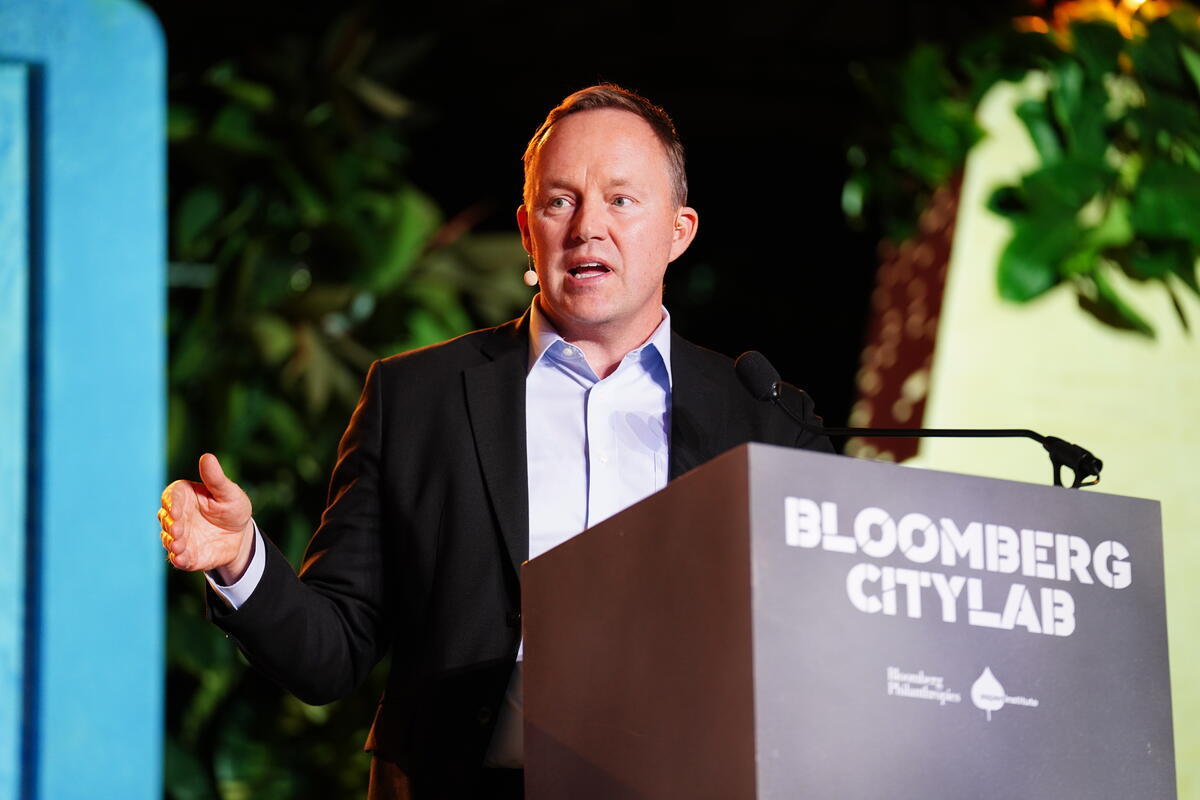
Photo: Screen-Shot-2015-12-15-at-12.50.58
The impact of home sharing on cities
16 November 2015
by Jonathan Andrews
Today’s urban innovators have begun to develop advanced tools that will make cities smarter, more efficient and easier to manage. Molly Turner of Airbnb explains how we can harness our technological power to revolutionise the way we live in cities.
Airbnb was invented quite simply to fix founders Brian and Joe’s immediate problem one week in 2007–they couldn’t pay their rent. It also fixed another problem: all the hotels in San Francisco were booked for a conference and attendees had nowhere to stay. By blowing up air mattresses in their living room, renting them to attendees, and serving breakfast, they fixed these two problems with a single elegant solution: the AirBed and Breakfast.
After that first week, Brian and Joe realised that these two problems were not unique to them or to the city of San Francisco, and that Airbnb could be a solution for a lot of people and places. Thus, Airbnb was born as a global conference lodging solution and was officially launched to the rest of the world in Denver, Colorado for the 2008 Democratic National Convention.
Then US presidential candidate, Barack Obama, was scheduled to give a speech to thousands of delegates and fans in the city’s biggest arena. But the city couldn’t accommodate everyone and the mayor considered opening the public parks for camping. It was perfect timing to unleash home sharing in the city of Denver, which Brian and Joe did with great fanfare
“AirBed and Breakfast will definitely appeal to younger travellers, and conventioneers who can’t find a regular hotel room,” Tech Crunch wrote of the young company. “In overbooked Denver, where 20,000 people will be descending for the Democratic National Convention, hotels are already sold out. More than 600 people have found alternative accommodations through AirBed and Breakfast.”
From small solution to big impact
Some of the best innovations are also adaptable to community needs and can evolve over time. If Airbnb had remained a conference lodging solution, we probably wouldn’t be talking about it today. However, it turns out that people like to stay in a local’s home when travelling for fun, not just for conferences. It also turns out people struggle to pay their bills all year long. It was precisely these people–Airbnb’s users–who led the company’s evolution into what it is today: some hosts stopped serving breakfast (not everyone is a great chef), others started renting spare bedrooms (with actual beds) or even their entire homes when out of town. The ingenuity of the Airbnb community helped the company to evolve into a ‘marketplace for spare space,’ and into a platform that could truly revolutionise the way we live in cities.
We live in cities because it’s more efficient and productive for us to share space, services and resources. But, over time, we’ve forgotten how to collaborate and share–in other words we’ve forgotten what it means to live together in cities. This new era of mass urbanisation, economic globalisation and technological revolution presents many challenges, but it also presents us with an opportunity to reshape our cities, to reconnect with each other, with our neighbours and with our urban environments.
At Airbnb, we believe that cities are the original sharing platforms– formed at ancient crossroads of trade, and grown through collaboration and shared resources. That’s why we’ve studied the economic, environmental and social impacts of home sharing on cities extensively, and why we want to partner with cities to advance those positive impacts.
Airbnb is a trusted community marketplace for people to list, discover and book unique accommodations around the world–online or from a mobile phone or tablet. Whether a spare bedroom, an apartment, a villa or a private island; Airbnb connects travelers to a more diverse and authentic range of experiences in more than 34,000 cities and 191 countries.
Airbnb and our community are part of the growing sharing economy, a business model powered by new network technologies and social tools that is redefining the ways goods and services are created and exchanged amongst citizens, businesses and governments. The Sharing Economy is about how resources are used, how hospitality is exchanged, how residents are empowered, and how economic opportunities are distributed across diverse communities.

Economic impacts
The economic benefits of home sharing are distributed across three basic categories:
- Impacts on consumers and the tourism industry;
- Impacts on neighbourhoods and local businesses; and
- Impacts on residents and households.
Impacts on consumers and the tourism industry
The growth and mainstream adoption of home sharing is leading to fundamental changes in how people travel and experience destinations. These trends are resulting in increased travel, increased spending, and an engagement with different parts of a city than travellers have typically visited.
Our data shows that Airbnb attracts visitors who stay longer than traditional tourists, spend more at local businesses, and are more likely to be return guests to the city. These realities fundamentally strengthen the tourism industry and create additional opportunities for growth without requiring new investment or infrastructure on the part of the city.
Across cities surveyed, roughly one-third of all Airbnb guests say they either would not have come or would not have stayed as long without Airbnb.
- Additionally, Airbnb guests tend to stay 2.1 times longer and spend 1.8 times more than typical visitors.
This additional travel and spending has occurred while stays in traditional accommodations have also continued to grow. Recent analyses show that hotel occupancy and room rates in Airbnb’s top markets around the world are at all-time highs.
Impacts on neighbourhoods and local businesses
In addition to changing how guests travel, Airbnb has changed where guests stay when they travel. By staying in less concentrated neighbourhoods, Airbnb guests distribute the economic impacts of travel to neighbourhoods that have not traditionally received the benefits of the tourism industry.
- Seventy-four percent of Airbnb properties in major cities are located outside of traditional hotel districts.
- Not only are guests staying in different parts of the city, but our research indicates that 42 percent of guest daytime spending remains in the neighbourhoods in which they stay.
This means that more money is being spent outside of traditional tourist neighbourhoods–strengthening local communities and businesses. Such investments in local commercial districts benefit both hosts and non-hosting residents.
Impacts on residents and households
Since Airbnb was founded in 2008, hundreds of thousands of hosts worldwide have welcomed guests into their homes. Airbnb hosts are ordinary citizens for whom hosting fundamentally helps make endsmeet, keeping them in communities amid increasing living costs and income inequality.
- Across Airbnb’s top markets, on average 82 percent of hosts share the home in which they live.
- Fifty-two percent of Airbnb hosts live in low- to moderate-income households.
- Forty-eight percent of the income hosts earn through hosting on Airbnb is used to pay for regular household expenses like rent and groceries.
- Forty-seven percent of hosts report that income earned from hosting has helped them stay in their homes.
Airbnb hosts rely on this supplemental income to help pay bills and contribute to their savings, and the income has also played an important role in neighbourhood resilience in the face of economic change.
Environmental and social impacts
By helping residents share their homes, Airbnb promotes the efficient use of existing resources as well as a more environmentally sustainable way of travelling. When staying in someone’s home, rather than in a hotel, Airbnb guests conserve significant resources.
Airbnb guests:
- Generate 32 percent less waste in the US and 0-28 percent in the EU.
- Use 12 percent less water in the US and 48 percent in the EU.
- Consume 63 percent less energy in the US and 78 percent in the EU.
- Produce 61 percent less greenhouse gases in the US and 89 percent in the EU.
Money is being spent outside of traditional tourist neighbourhoods–strengthening local communities and businesses
Airbnb’s peer-to-peer interactions build community, foster cultural exchange, and strengthen empathy and understanding. These kinds of impacts are difficult to quantify, but we’ve tried:
- Fifty-two percent of hosts say that hosting has positively impacted the way they interact with their community.
- Sixty-one percent of hosts say that hosting has positively impacted the way they look at life.
Perhaps the best way to understand the social impacts of home sharing is through stories of actual community interactions. In October 2012, Superstorm Sandy devastated the Caribbean and the Eastern Seaboard, leaving thousands without a home. Airbnb knew this would have an impact on our community there, particularly in New York City, where we had thousands of hosts and guests at the time. Immediately after the storm hit, we talked with our community, who began to share their stories and ideas. One Brooklyn host told us: “I’m OK. My power is on. My house is still standing. But I want to help out my neighbours who are not OK. Airbnb can you help me offer my home to my displaced neighbours for free?”
We took that altruistic idea and ran with it. Our engineers stayed up over night, hacking the back end of our website to create a solution for emergency housing. Within one week, more than 1,400 Airbnb hosts in New York had opened their doors to displaced neighbours for free. When we heard their stories, we were humbled, inspired and committed to building a way to scale these generous acts throughout our community and around the world. Our disaster relief initiative was born.
Today, we partner with our community, local government agencies and global disaster relief organisations to provide additional housing to areas affected by natural disasters from flooding in Texas, to a typhoon in the Philippines and an earthquake in Nepal. I don’t know how to measure that kind of generosity and the impacts it has on civic communities, but it’s undeniable.
A simple idea that began in one living room in San Francisco grew to millions of homes around the world and has evolved from an accommodation solution into an economic lifeline for households, an economic distribution model, a sustainable development tool, and an emergency shelter solution–all aspects of urban life that city leaders care deeply about. That is why Airbnb wants to build collaborative, long-term relationships with cities. By partnering with our local communities and their civic leaders, we can advance the economic, environmental and social benefits of home sharing in the cities our hosts and guests call home.








